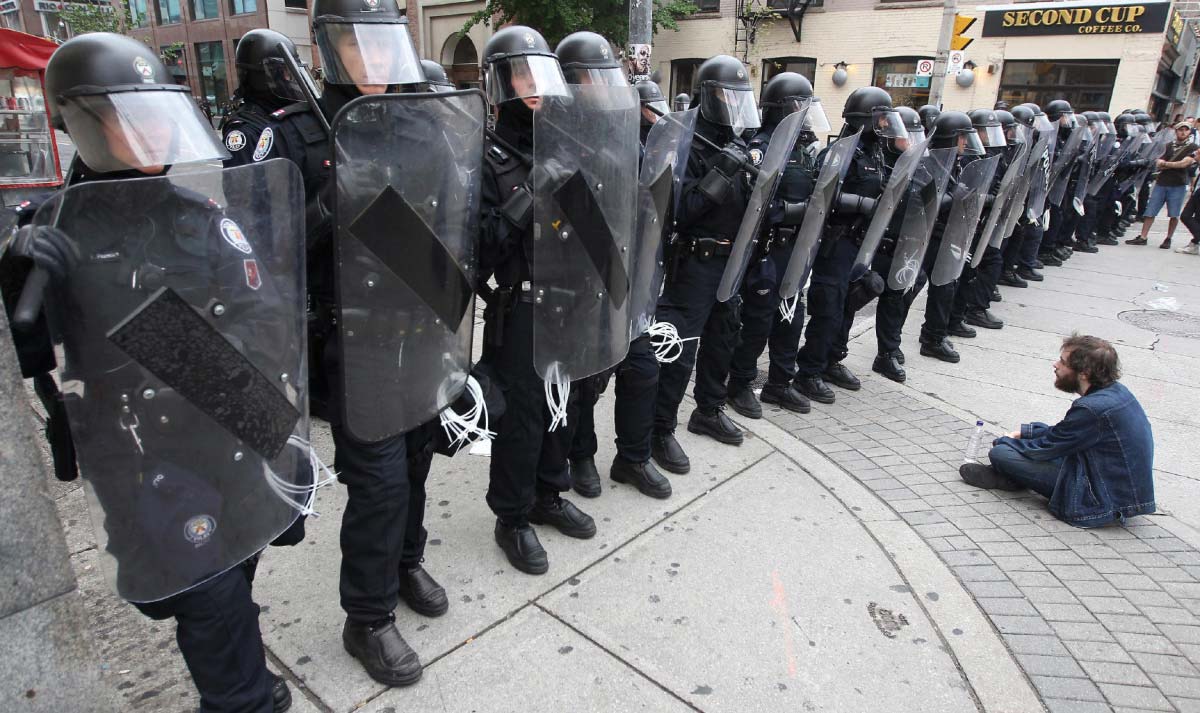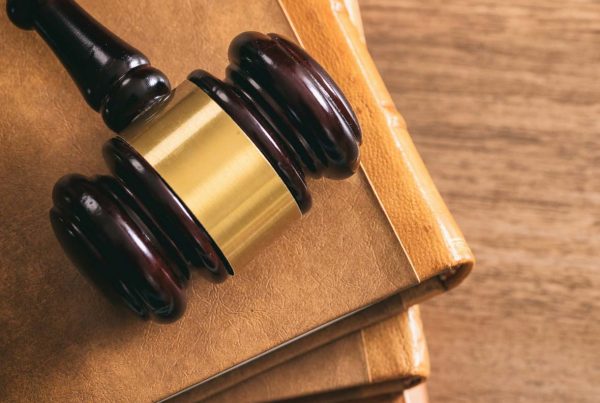The Ontario Court of Appeal has handed down an important decision in a case that grew out of the protests during the Toronto G20 summit in June 2010. The case deals with fundamental questions about the right to protest and police powers. The Court of Appeal’s unanimous decision is an important victory, although the fact that it came close to ten years after the incident that spurred it shows just how hard it can be to have basic rights protected and vindicated by our courts.
In Stewart v. Toronto Police Services Board, the Court considered a claim brought by Luke Stewart, an activist who went to Allen Gardens park in Toronto for a rally that would be followed by a protest march through Toronto’s city streets. The police had decided to establish a perimeter around the park and require everyone entering with a bag or backpack to submit to a search. Those who refused were told they could not enter and were turned away.
Mr. Stewart would not consent to the search – he entered the park despite the instructions of the police and was then detained, had his bag searched, his swimming goggles seized (on the basis that they might be used to defeat police tactics such as tear gas) and was then released and allowed to enter the park and join the rally. Mr. Stewart sued the police, arguing that they had no right to require a search and claiming violations of his Charter rights, namely freedom of expression (s. 2(b)), the right to be free from arbitrary arrest and detention (s.9), and the right to be free from unreasonable search and seizure (s. 8).
CCLA intervened in the case to argue that Mr. Stewart’s rights had been unreasonably limited and that the police did not have the power to require that he consent to a search as a condition of entering a public park. The judge that initially heard the case decided that the police had acted lawfully and rejected Mr. Stewart’s claims. Despite the significant risks and costs involved, Mr. Stewart appealed. Once again, the CCLA intervened to argue that fundamental rights had been violated and should be vindicated.
We are pleased with the Ontario Court of Appeal’s decision, which found that the police had no legal authority to make a search a condition of entry to the park. The police had relied in part on the Trespass to Property Act and a letter given to them by the City of Toronto that allowed them to enforce that law. But the Court of Appeal found that the City had not established any rules that said you had to consent to a search before entering a park and it was not up to the Toronto Police to make these rules up themselves. Since the condition of entry had no basis in law, Mr. Stewart’s rights were unjustifiably violated. In the circumstances, the Court decided that only a modest damage award was appropriate. He was awarded $500 in recognition of the violation of his rights and to deter the police from similar violations in the future.
The Court’s legal decision is an important one, but the case’s trajectory through the courts shows how difficult it can be to have rights vindicated and to hold the police accountable for actions that violate the Charter. People who have their rights violated by the police often have few incentives to pursue legal action – the investment of time and resources (particularly money) are significant, and there may be little payoff. In Mr. Stewart’s case, while his decision to pursue the case resulted in a good decision that can benefit others, his ten year investment in the case may be hard to square with the relatively small damage award he received. CCLA is grateful to people like Mr. Stewart who pursue their rights before the Courts, and we thank Torys LLP lawyers Winston Gee and Sarah Whitmore for their excellent pro bono assistance on this file.
About the Canadian Civil Liberties Association
The CCLA is an independent, non-profit organization with supporters from across the country. Founded in 1964, the CCLA is a national human rights organization committed to defending the rights, dignity, safety, and freedoms of all people in Canada.
For the Media
For further comments, please contact us at media@ccla.org.





